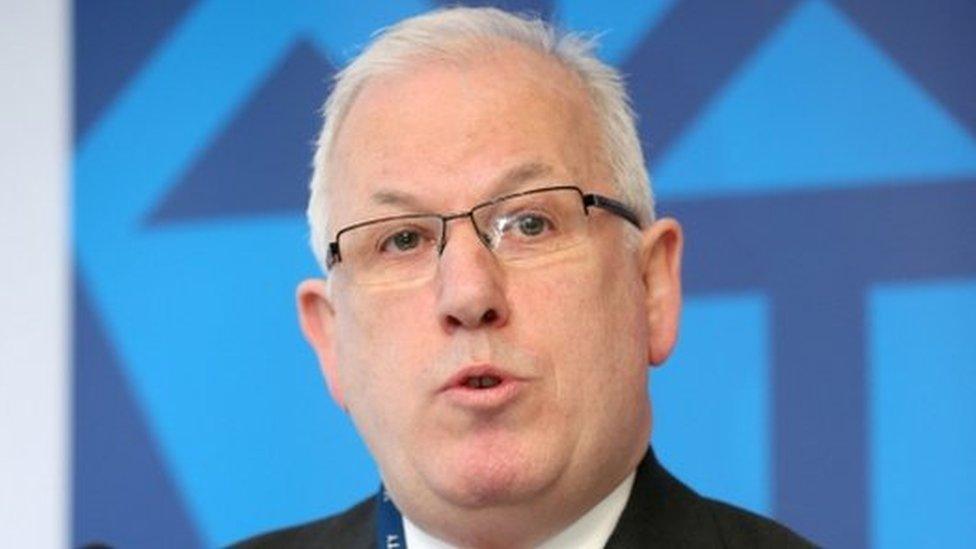Police watchdog chief Susan Deacon quits over 'fundamentally flawed' system
- Published
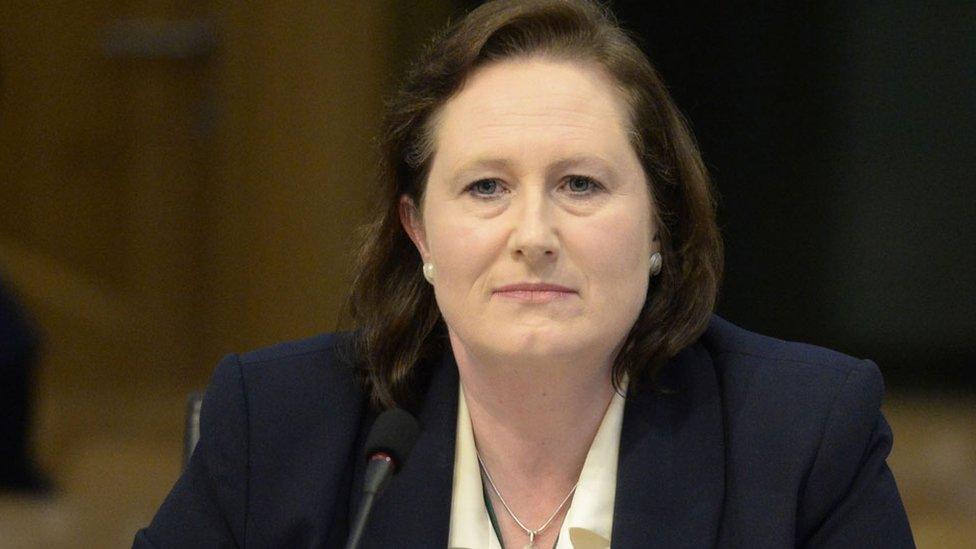
Susan Deacon was a Labour MSP for two terms, and served as health minister
Susan Deacon has resigned as chairwoman of Scotland's police watchdog, saying the system is "fundamentally flawed".
The former Labour MSP was appointed to the Scottish Police Authority in 2017.
But in her resignation letter, she said there was "little more" she could do to make the governance and accountability of policing work effectively.
First Minister Nicola Sturgeon rejected opposition claims the police service was "in crisis" and said the SPA would continue to make improvements.
Prof Deacon was the third person to chair the SPA since it began work in April 2013 alongside the launch of Scotland's single police service.
Why has Susan Deacon resigned?
When she was appointed in 2017, then justice secretary Michael Matheson said she would "bring a fresh perspective to the governance of Scottish policing".
Prof Deacon said she had worked "tirelessly" to ensure the SPA operated effectively, and that public confidence and trust in policing was maintained.
"In truth, however, I have increasingly become convinced that the governance and accountability arrangements for policing in Scotland are fundamentally flawed, in structure, culture and practice, and I conclude that there is little more I can do to make these arrangements work effectively," she said.
"I would suggest that the Scottish government thinks afresh about how the police service is scrutinised and held to account and how, or if, a better separation between politics and policing, and indeed between the police service and those who oversee it, can be achieved."


It has not been an easy two years for Susan Deacon as chairwoman of the Scottish Police Authority.
She was appointed in December 2017 following turmoil in the authority, which was seen as lacking transparency in its dealings, and was rocked by accusations of bullying surrounding previous chairman Andrew Flanagan.
The police service was also in turmoil, with a series of allegations of gross misconduct being investigated against the chief constable, Phil Gormley, who resigned in early 2018.
Prof Deacon has been credited with making the actions of the authority, whose role is to hold Police Scotland to account, more transparent.
But it is her criticism of the way the national force is scrutinised and held to account which will cause concern, particularly her view that current governance and accountability arrangements are fundamentally flawed.
It was a view shared by HM Chief Inspector of Constabulary for Scotland, Gill Imrie, who told Holyrood's justice committee on Tuesday that senior officers at Police Scotland had become "frustrated" by the lack of scrutiny. In an earlier report, external, she said there was "no clear vision, strategy or plan in place" for the SPA.
Policing inevitably is a highly political matter, but Prof Deacon said the government must review the separation between politics and policing, and said she felt there was little more she could do in the role.

What has the government said?
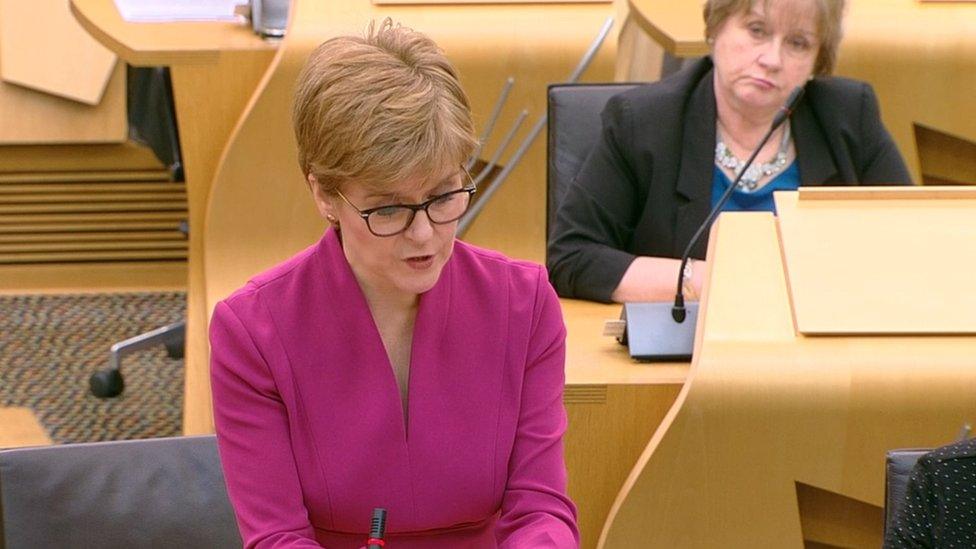
First Minister Nicola Sturgeon responded to questions about the Scottish Police Authority
Justice Secretary Humza Yousaf said there had been "significant improvement across many facets of the police service in Scotland" during Prof Deacon's time at the SPA.
"As Ms Deacon herself acknowledges, our police service is in a much stronger place now than prior to her appointment," he said.
At First Minister's Questions, Scottish Lib Dem leader Willie Rennie said the police was "in crisis once again" and claimed there was a "toxic mix of chaos and complacency".
Ms Sturgeon replied: "The police is not in crisis and I think it does a disservice to police officers around our country who are working so hard to keep us safe to say so."
She said the SPA would continue with the improvements which were being made to governance and accountability.
How have others reacted?
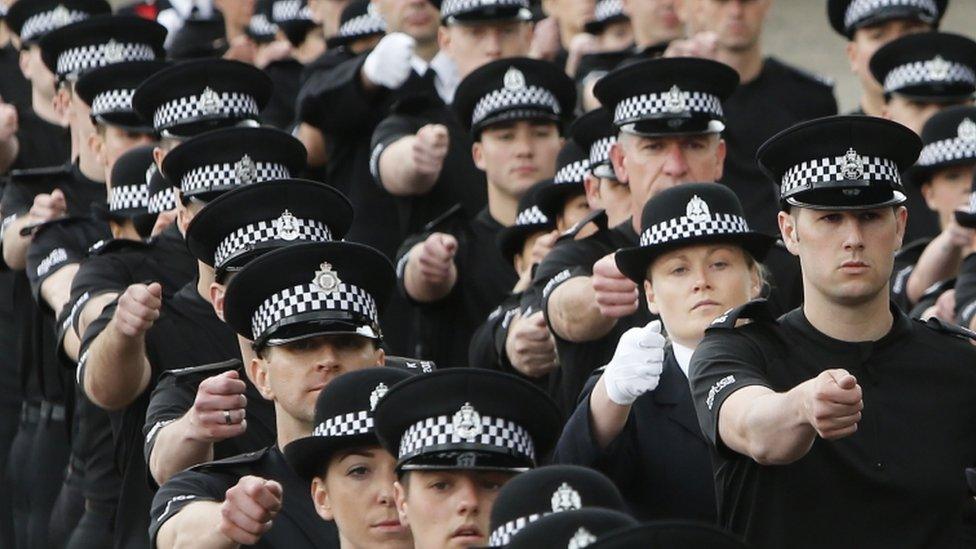
Audit Scotland has criticised the SPA for poor governance and a lack of transparency
Scottish Labour said the resignation "raises serious questions" about the SPA's ability to oversee Police Scotland, while the Scottish Conservatives described the SPA as "an organisation in crisis".
The SPA's vice chairman, David Crichton, will lead the SPA until a new appointment is made.
He said: "We believe that the system of governance and accountability for policing in Scotland that was envisaged by the founding legislation is a sound one and can work effectively," he added.
"While we respect this personal decision of the chair, our collective focus will be on working together with our dedicated staff team to build on recent progress, deliver the actions and improvements already identified, and redouble the SPA's focus on the issues of greatest importance to policing and the public."
However, the Scottish Police Federation said the resignation was not a surprise.
Its chairwoman, Andrea MacDonald, said: "It has been apparent to the Scottish Police Federation that the authority has not been operating effectively for some time.
"It is nonetheless disappointing that we now see the Scottish Police Authority looking for its fourth chair in six years."
What happened to previous chairs of the SPA?
Ms Deacon's predecessor Andrew Flanagan resigned in June 2017 after heavy criticism from two Holyrood committees over governance and transparency at the SPA.
He said he was quitting to avoid being a "distraction" to the new 10-year policing strategy, and that the "personalised" debate had "impacted on me and my family".
The SPA's first chairman, Vic Emery, stepped down in September 2015 after deciding not to seek an extension to his contract.
He had been involved in a number of public spats with the first chief constable of the new police service, Sir Stephen House.
- Published8 December 2017
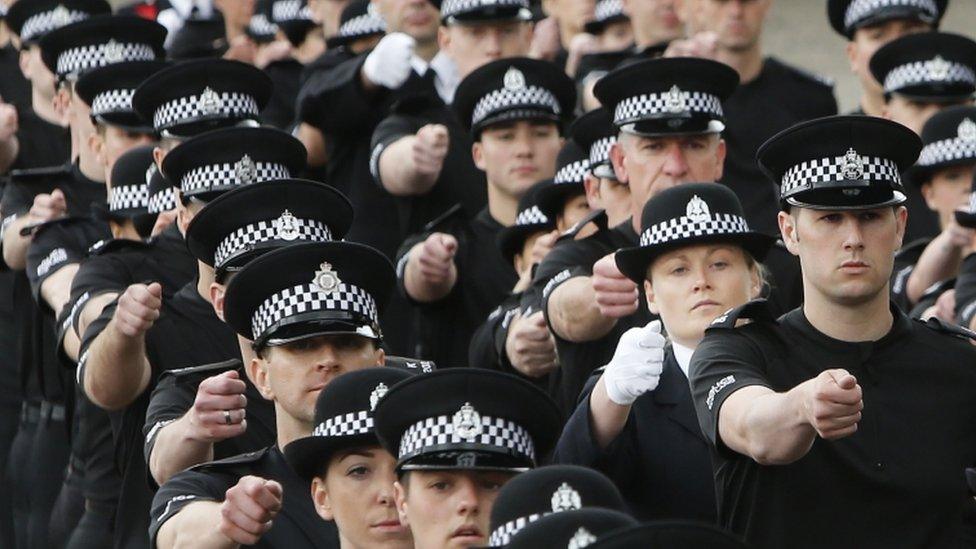
- Published16 November 2017
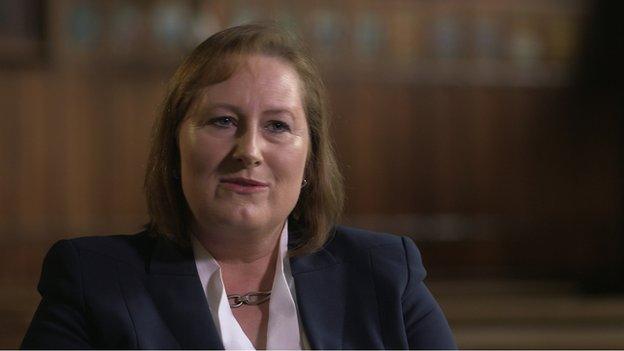
- Published14 June 2017
